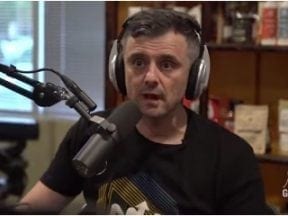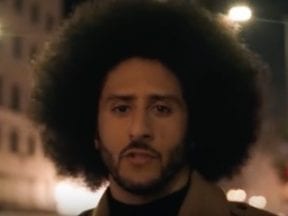Producing quality videos is immensely difficult. It requires a clear vision from idea to finished product. Many ecommerce businesses spend large amounts of money generating video content that few consumers watch. But with the right mindset and strategy, viewers will engage with your videos. YouTube could become a successful channel for your business.
I am the founder of Beardbrand, an Austin, Texas-based ecommerce business that focuses on beard care and men’s grooming. This is episode nine in my series on building an ecommerce business from the ground up. The previous installments are:
- “Part 1: Choosing Partners,”
- “Part 2: Selecting Platforms,”
- “Part 3: Early Days,”
- “Part 4: Copywriting Matters,”
- “Part 5: Paid Acquisition,”
- “Part 6: Hiring Employees,“
- “Part 7: Shipping and Fulfillment,”
- “Part 8: Customer Service.”
For this article, I spoke with Sven Raphael Schneider, founder of two businesses related to men’s fashion: Gentleman’s Gazette (an online magazine) and Fort Belvedere (clothing and accessories). We discussed his company’s origins and the strategies he has used to attract millions of views on its YouTube channel.
What follows is my entire audio conversation with Schneider and a transcript, edited for length and clarity.
Eric Bandholz: Please introduce yourself and your business.
Sven Raphael Schneider: I’m from Germany. I live in the U.S. now. I founded Gentleman’s Gazette, which is a content site, in 2010. Then we added on Fort Belvedere, which is our brand for quality men’s clothing and accessories — ties, scarves, gloves, you name it — all in classic style.
We never wanted to be mass market. Classic style what I like. I can wear it today or 10 years from now and it will stand out. Sometimes it is subtler; sometimes it’s a little louder. But it’s always noticeable. It makes people think more highly of you, respect you more, think you have more money, think you’re smarter. It helped me personally. It’s what I want to bring to the world.
Bandholz: When did Gentleman’s Gazette start using YouTube?
Schneider: When I launched the company, YouTube was pretty fresh. Blogging was the hot thing back then. We started with text-based content. The idea was just to have a Huffington Post model where you write content and sell ads. We realized that wasn’t so easy. People were asking for quality apparel products. We decided, why don’t we make them?
It was stuff I had a hard time finding. I wanted to find quality craftsmen around the world and have them make good products for us.
We dabbled on YouTube early on, like 2010, with just a Panasonic Lumix camera. It could shoot 720 pixels, which at the time was pretty good. I didn’t think I had the money to produce the quality that I wanted until 2014 or 2015. Looking back, that was a mistake.
Bandholz: The best day to start something is today, in other words.
Schneider: Exactly. At the same time, when we focused on YouTube, four years ago, it wasn’t the hot thing yet. The competition was much less. It takes a lot of money to consistently produce nice videos. The fact that it’s more expensive and more difficult to produce means it keeps out all the amateurs.
Bandholz: How many views are you receiving now?
Schneider: Our Gentleman’s Gazette channel receives 2.2 to 2.4 million views a month. That’s up almost 100 percent from last year. We have roughly 360,000 subscribers. I’m a big believer in looking at what YouTube values the most: watch time. The numbers of subscribers are irrelevant. I can have millions of subscribers, and if no one’s watching, it doesn’t matter.
Bandholz: Tell us about your YouTube strategy.
Schneider: We always wanted to produce quality content that is valuable and helpful. We didn’t have didn’t have much video knowledge when we started. If you look at our earlier videos and then go the more recent ones, you can see a clear progression. We try to provide good how-to guides, to show people what’s quality, what’s not, and how to distinguish it. It’s not very sales oriented. We don’t do a lot of videos about just one individual product.
We receive nearly as many sales from YouTube as from email, which traditionally has been our strongest revenue channel. But YouTube is growing and will be taking over soon.
We publish two videos a week, but we film four a week. The goal is to build a buffer. As I’m speaking with you, we have a buffer of 30 videos. Once we hit an adequate buffer, we’ll publish three times a week, and then four times.
Bandholz: You’ve had quick subscriber growth.
Schneider: I’m a fan of analyzing other YouTube channels. What I’ve seen so far is you need a bunch of good videos — three or four hundred. At that point, YouTube starts promoting your videos. When one video is promoted, all others on your channel are, too. You rarely see that with new channels unless they have exceptional content.
So it’s hard to get started. Then you have to keep going. Most people give up too early.
Bandholz: If you don’t have 300 quality videos, what is the system and process to get there?
Schneider: What works best is valuable content. I can’t tell you what that is. List format always works better. Plan your content. Try to educate people and be generally helpful in that space.
Once you’re at a certain stage of followers and subscribers, add a vlog style format, add more lifestyle. People have come to know the channel. They like the brand, and they like what’s involved with it. If you start with vlogs, no one cares about you. It’s not going to be successful.
Bandholz: What are common mistakes in the ecommerce space when it comes to YouTube?
Schneider: Too many ecommerce channels are sales-driven. All they do is they create product videos and, maybe, show how to use them
YouTube allows ads once a channel hits a certain level of subscribers and watch time. But an ecommerce business doesn’t want ads if the primary purpose is to funnel people to its website. YouTube allows you, also, to add cards in the video; you can put your links on those.
Bandholz: Do you allow sponsored content on your channel?
Schneider: We used to allow sponsored content in a very selective way. A lot of companies in our space publish several sponsored videos a week. We haven’t published five sponsored videos in our entire career. We may consider it if the sponsored video is 100 percent in line with what we believe and we like the products.
Bandholz: We have the same outlook for Beardbrand’s channel. We’ll allow one sponsored video every quarter or so. It has to be a brand that works or makes sense for our audience. Changing the subject, what is the time frame to produce a video from idea to completion?
Schneider: We produce a lot of content. So we plan all videos for the quarter. Then we shoot them. We have a content team; I’m far removed. In the beginning, I did everything myself. I’m still involved with a lot of brainstorming. We think about our current and prospective customers. What would be helpful to them?
See the next installment, “Part 10: Apparel Sales, Manufacturing.”




